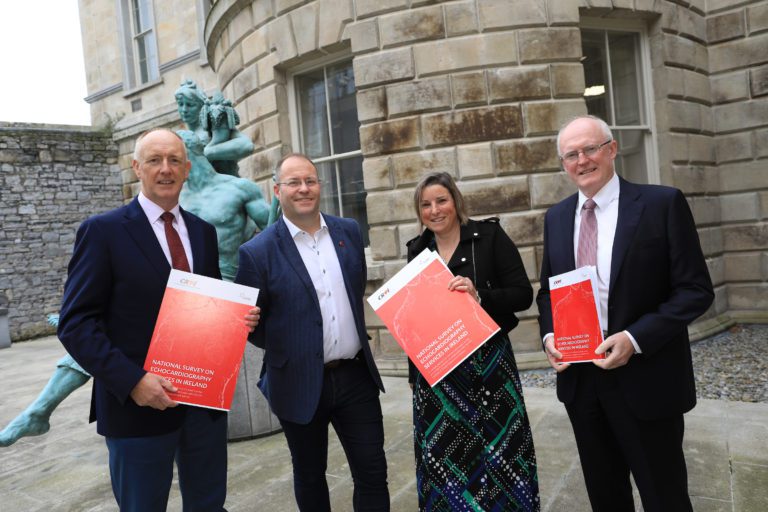Long wait times in accessing basic heart tests
expose major inequalities in Irish health system
Patients waiting over a year for test that takes six weeks in the UK
Research published today by heart and stroke charity, Croí, has outlined that 80% of public hospitals do not offer GPs direct access to echocardiograms – an essential diagnostic test for heart patients. This majorly increases wait times for those seeking echocardiograms through the public system.
Patients referred for an echocardiogram through a private provider wait, on average, up to one month for their test. Waiting times for those referred for the same test through the publicly-funded health system must wait at least six months and, in many cases, have a wait time of over one year.
The waiting times reflect poorly when compared internationally. In the United Kingdom, the NHS Constitution outlines that patients have a ‘legal right to treatment within 18 weeks of referral and as part of this, pledges that patients should not be required to wait six weeks or more for a diagnostic test’. In Ireland, only private hospitals meet this benchmark for diagnosis.
The problem is attributed to a lack of trained personnel and streamlined referral pathways. The research highlights the potential for even greater inequalities and wait times for tests in the future due to the undersupply of cardiac physiologist graduates (the healthcare professionals who provide these tests) entering the workforce. This is coupled with the fact that the overall profile of cardiac physiologists in Irish hospitals is ageing, with, in some hospitals, up to 20% set to retire within five years.
Echocardiography describes a test which uses sound waves (ultrasound) to take a moving picture of the heart. It is routinely used in the diagnosis and management of a range of heart conditions, in particular heart valve disease, but also conditions such as heart failure and in non-cardiac disciplines, such as oncology.
The most common way a patient receives an echocardiogram is through GP referral. If a patient has private health insurance, they will be referred directly for an echocardiogram at a private healthcare provider. If a patient does not have private health insurance, they are referred to a cardiologist in a public outpatient clinic, where they are then referred to a cardiac physiologist for their heart scan.
Neil Johnson, Croí Chief Executive said: “The results of this research demonstrate glaring inequalities in what is available to Irish patients. The echocardiogram can now be performed on increasingly portable equipment which is not overly expensive. This non-invasive and, from a patient view point, relatively straight forward test can detect a range of heart conditions but a delayed diagnosis can result in deterioration which limits treatment options or can even prove fatal. We know that there is a lack of awareness of this issue and there is a real need for government to address this. We are now calling on the Minister for Health and the HSE to take action. Greater access to echocardiography tests and improved workforce planning must be part of a renewed, cohesive national cardiovascular strategy.”
Speaking at the report launch, Galway-based Consultant Cardiologist and Medical Director, Croi Prof Jim Crowley said: “This report demonstrates that the wait-times for echocardiography in the public system are unacceptably long. Ultimately, this can only be reduced by addressing the workforce deficiencies outlined. Plans for GP access to Echocardiography are very welcome, but to be successful, proactive workforce development needs to be undertaken urgently”.
Sharon Donohue, Cardiac Faculty Chair of the Irish Institute of Clinical Measurement Science noted: “This report highlights, the need for a robust workforce plan, covering the key workforce in this area – experienced Cardiac Physiologists, who perform and report these important and specialised investigations. The professional body recognises the need for an increased supply of graduates, support for post graduate training and certification in Echocardiography and the introduction of advanced practice to maximise the value of this highly skilled group of healthcare professionals and their impact on patient care.”
This survey was conducted across every Model 2, Model 3, Model 4 and private hospital in the state. The survey was completed by the most senior cardiac physiologist in each hospital department and yielded a response rate of over 90%, thus providing a very comprehensive picture of the state of play.
To read the report, please visit www.croi.ie/echosurvey
